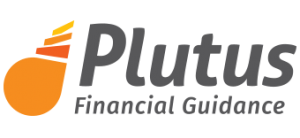Independent Superannuation Advice for the Self-employed
We don’t often think far ahead into what our future looks like and therefore don’t take steps to secure it.
Be prepared:
You have probably considered it, but now may be time to prioritise contributing to your super if you’re self-employed. It’s essential to be prepared financially for later life. Being prepared equates to less worry in the future and setting ourselves up for living as comfortably as possible.
Vince Lam can help provide key information and independent advice on paying super as a self-employed individual.
Advantages to paying your own superannuation contributions:
Seeking independent superannuation advice can assist in determining which super fund is best for your retirement goals. An independent superannuation advisor, or financial advisor, will undertake strategic analysis of the state of your superannuation to reveal opportunities to improve the state of your super balance.
- Cash savings during retirement.
- Claim a tax deduction for your super contributions.
- Superannuation investments mostly get better investment returns than bank saving accounts.
How to contribute to your super:
If you already have a super fund, ensure you check that you can make contributions when you’re self-employed and take advantage of contribution limits.
Choosing a super fund:
When comparing super funds in order to decide which is most suitable for you, assess the funds’ features and fees you’ll pay. Next, look into factors such as risk, investment returns services and insurance.
Performance:
Begin by comparing funds investment performance over at least five years. Consider the impact of fees and tax.
Low fees:
Fees can either be charged as a dollar amount or a percentage – some funds even charge both. Fees are generally deducted on a monthly-basis and many type of fees can exist.
Insurance:
Super funds generally have three categories of insurance for members:
- Life (also known as death cover)
- Total and permanent disability (TPD)
- Income protection
When making comparisons on what’s offered for default insurance, research into:
- Premium rates
- The amount of cover and exclusions or definitions that could affect you
If you’re a sole trader or in a partnership, begin by comparing super funds and seeking the relevant information that will inform which super it best for you.
If you require independent superannuation advice, please contact Vince Lam at Plutus Financial Guidance. Your unbiased specialist when it comes to long-term financial decisions.
Learn more about our independent superannuation advisory services here.



